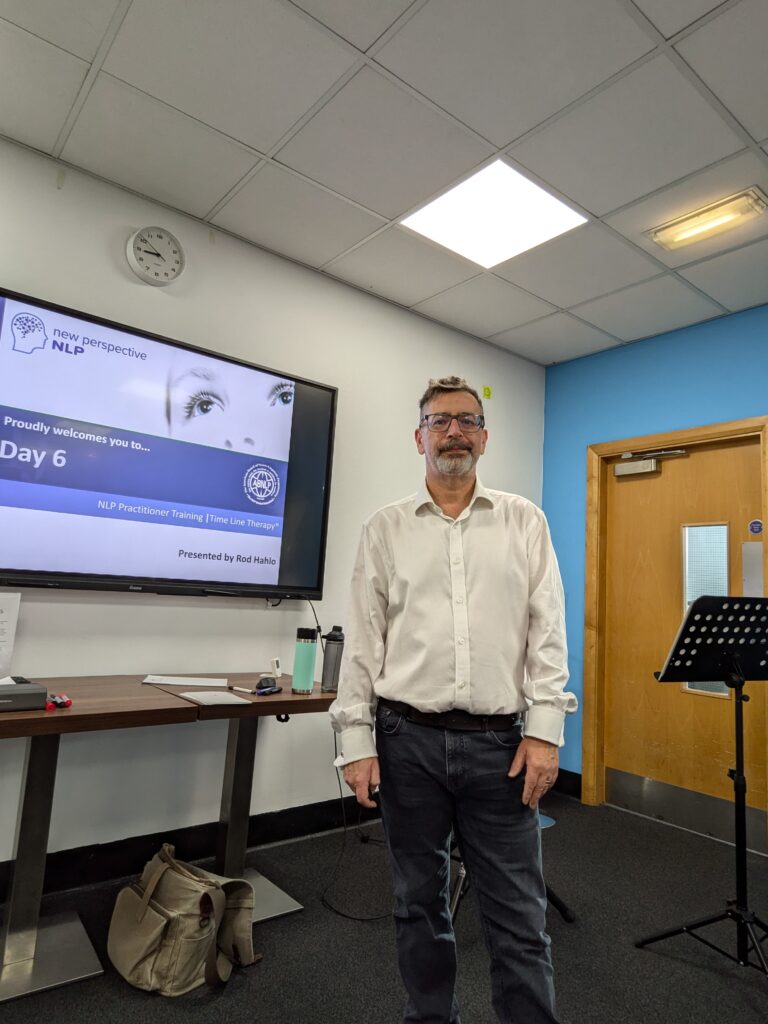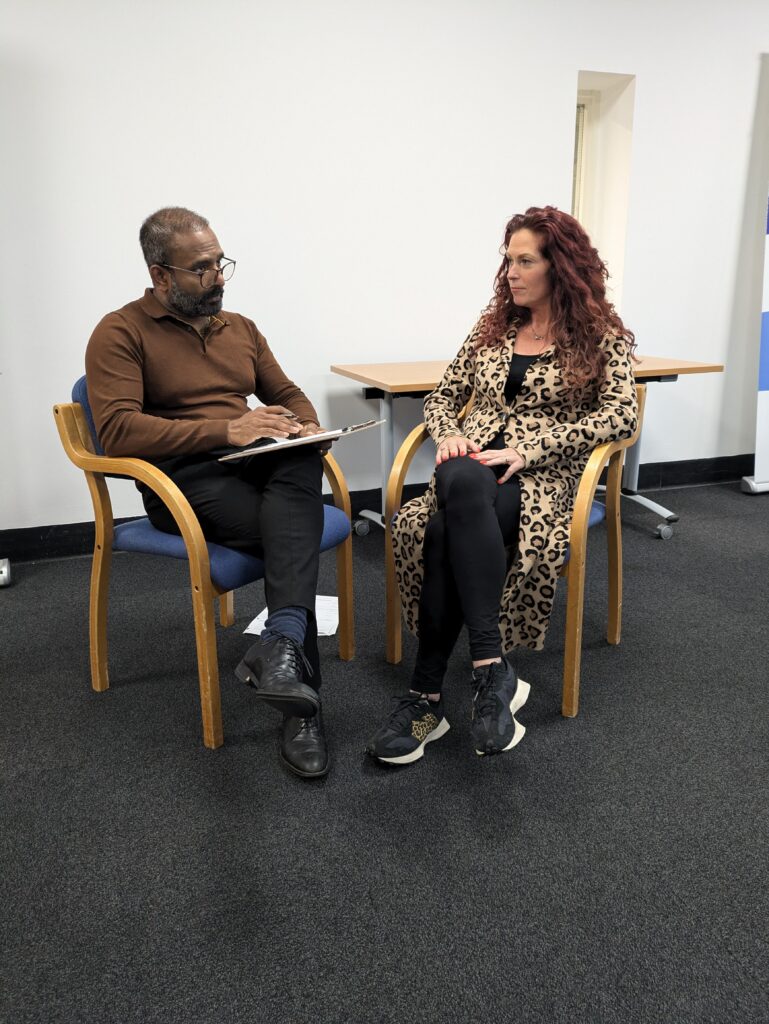
Start at the beginning
This is a commonly asked question I get from many Coaches from all backgrounds as well as those seeking a change of career to focus more fully on coaching as a business. The short answer is “more than you can ever know, right now”. To answer this we need an understanding of what NLP is first, before what it can do.
NLP is not a ‘badge’. It is best described as a journey in self-development to gain an approach to use anytime, anywhere with those who wish to make change and get in charge. To graduate as a Coach Practitioner, you will be learning and working with real clients as well as being a client yourself handling real challenges and problems.
NLP is the study of excellence and how we can model it to use on ourselves to get results. Imagine your mind as an operating system and the brain as the hardware of a computer, if we make changes to the operating system, such as re-programming and encoding which then runs through the hardware, we can make change happen.
NLP is like a handbook or instruction manual for the mind in order to get results. NLP is how to use the language of the mind to consistently achieve our specific and desired outcomes. (Please note specific not general). By understanding language and its impact upon your thinking and behaviour, you can make change in all areas of life for self and clients, rapidly.
In personal and professional development, NLP is a model of success that upon learning and experiencing you can add to and integrate into your practice. This enables you to work with a wide variety of clients on many blocks and barriers.

NLP Coaching
NLP is the ultimate upskilling for coaches, it takes existing skills and abilities and combined with a suite of totally new ones accelerates them further. Let’s take a fundamental skill in coaching of listening (some call it active listening) as an example.
An NLP trained coach is able to listen to hear the words and language a client is using so that they can:
Gain understanding of the ‘model of the world’ that the client is living in (in relation to their challenge)
Use words and language to identify the deep structure of the problem (which the client is not aware of consciously and bring into their awareness).
Use words and language to help the client loosen their ‘grip’ on the problem or challenge and then help the client to embed new thinking and behaviour to move forwards.
This is just one of the many parts to our comprehensive NLP Training. We regard language as the most important as its embedded into everything that we do, so we always start the training by focusing upon it.
Training in NLP
NLP offers many options to help clients overcome whatever is holding them back rapidly and effectively. This represents value to your clients as well as enabling you to spend your time effectively.
NLP Coach Practitioners are trained to work confidently at any level with clients on a wide range of challenges in work and in life, a holistic approach resulting in empowered change.
Here are examples of areas NLP coaches can work on:
Limiting beliefs, confidence, anxiety*, fears*, Phobias*, relationships, mindset, motivation, procrastination, unresourceful behaviour, self-doubt, wellbeing, self care, stress*, PTSD*, trauma*, presentation or test nerves, goal setting, being best version of self, interview skills, sales, marketing, new perspective.
*Using Time Line Therapy® and Hypnotherapy (in combination with NLP, additional certifications included in our training)
In essence, NLP offers many options for a coach to use with clients and to retain them. Have a look at some client work examples on our feedback page.

Using NLP
We can use NLP and the skills in a blended approach, like creating the perfect ‘smoothie’ for each client. As we are all individual and respond differently, its important to make a tailored ‘blend’. To do this we can operate by using a blended approach of the following:
NLP & NLP Coaching – using language as well as other additional techniques (thirteen in total)
Time Line Therapy® – a powerful content free approach used to release negative emotional baggage ‘weighing’ us down collected over time (Anger, Sadness, Fear, Hurt, Guilt). Used for anxiety, worry, stress, fears, low mood, phobias, trauma and goal setting.
Hypnosis – can be used for many of our day to day challenges eg stress, relaxation, creativity, fears, phobias and embedding new behaviours.
So the ultimate approach to enhancing or starting your coaching is to complete all of our certifications which we offer on our training.
Trained NLP Coach Practitioners are able to work with a variety of clients in all sectors such as Health and wellbeing, Business, Education, Health, Personal Growth and Sport.
Here are some examples of what previous students have gone on to do after training:
- Improved career prospects and direction
- Set up a new business as an NLP Coach or alternative therapist (one in another country)
- Improve and develop an existing coaching practice or therapeutic business
- Develop your existing business
- Offer Coaching and Consulting
- Introduce new thinking and skills into your workplace
- Create innovative training programmes in communication, influencing, selling and negotiating
- Generate new business and ongoing contracts for existing companies
- Work in learning and development using advanced learning techniques
- Create wellbeing programmes
- Work with adults and young people
- Work with people on relationships and communication
- Develop performance programmes for athletes, sales staff
- Leadership development training
- Improving confidence, self-esteem and self-worth
- Create the life you want

